Mozambique: Civil society criticises president for rejecting Mondlane accord
Mozambique: Provincial governors introduced to the population – Noticias
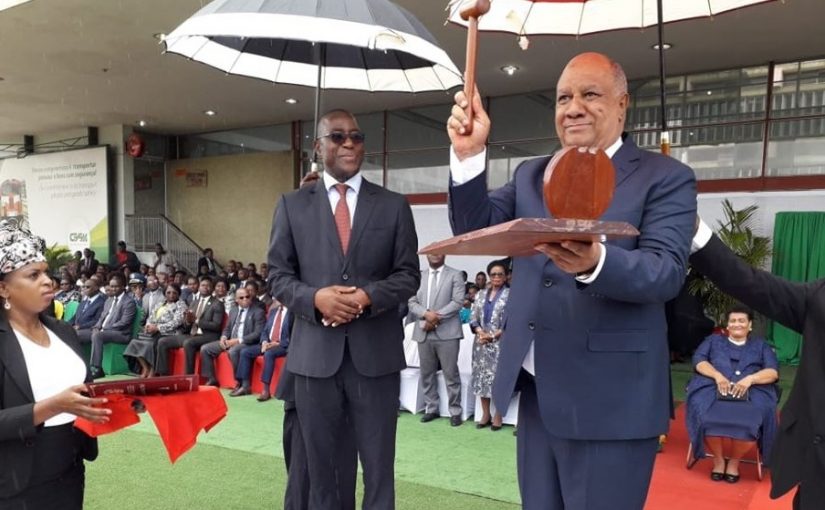
Lourenço Bulha, Sofala governor. [photo: Social Media]
The first elected provincial governors in the country, on October 15, 2019, were presented publicly to the population in their provinces, marking the beginning of the exercise of their functions, Noticias reports today.
The public presentation took place after they were sworn in by the President of the Republic, Filipe Nyusi, in light of the new model of decentralised governance provided for in the Constitution of the Republic, amended in 2018.
ALSO READ: Govt still working on budgetary impact of decentralisation – Mozambique
The constitutional amendment is the result of consensus in the political dialogue on decentralisation between the Government and Renamo, providing, among others things, for the election of provincial governors from 2019 and of district administrators in the general elections of 2024.
They are: Judite Massengele, Niassa; Valige Tauabo, Cabo Delgado; Manuel Rodrigues Alberto, Nampula; Pio Augusto Matos, Zambézia; Domingos Viola, Tete; Francisca Domingos Tomás, Manica; Lourenço Bulha, Sofala; Daniel Chapo, Inhambane; Margarida Mapanzene Chongo, Gaza; and Júlio José Parruque, Maputo-province.
The ten provincial governors led the lists of the Frelimo Party in the general elections and the provincial assemblies of 15 October 2019, for which Renamo and the Democratic Movement of Mozambique (MDM) also competed in all provinces.
The several public presentation ceremonies of the new governors were conducted by the representatives of the President of the Republic, namely ministers who make up the new Government for the five-year period 2020-2024.
Parruque wants to expand water and energy services
The Governor of Maputo province, Júlio Parruque, said that during his five years of governance he will invest in the rapid expansion of the electricity network and water supply.
Parruque gave his guarantee on Saturday at a ceremony in which he was presented as the new governor of the province by the Minister of Foreign Affairs and Cooperation, Verónica Macamo Dlhovo.
On the occasion, Parruque also spoke of investing in passenger transport, which will involve the construction of roads and implementation of a culture to uphold maintenance works, thus facilitating the flow of agricultural products to supply the markets.
With investment in these areas, the governor of Maputo province believes that a well-stocked society will be created, where people, and communities in general, will fulfil their needs more and more easily.
Júlio Parruque also intends to attract more investment, both for new production units and for the reopening of closed-down factories, to create more jobs for young people.
Still in the employment field, he explained that investment starts in training, so he will pay special attention to vocational training, including school education, which should be of quality and accessible to all.
He underlined that the goal is to be a “nursery” for the training of qualified labour for both the local market and hydrocarbon megaprojects in the Rovuma basin.
“We don’t want to be a province with the country’s largest industrial park by name only. So we will work to get Maputo more factories,” Parruque said.
In the housing sector, the governor explained that the problem will be addressed through the partnership with the private sector, the Central Government and development agencies, for the construction of low-cost housing and in the infrastructure of the land to facilitate access to plots.
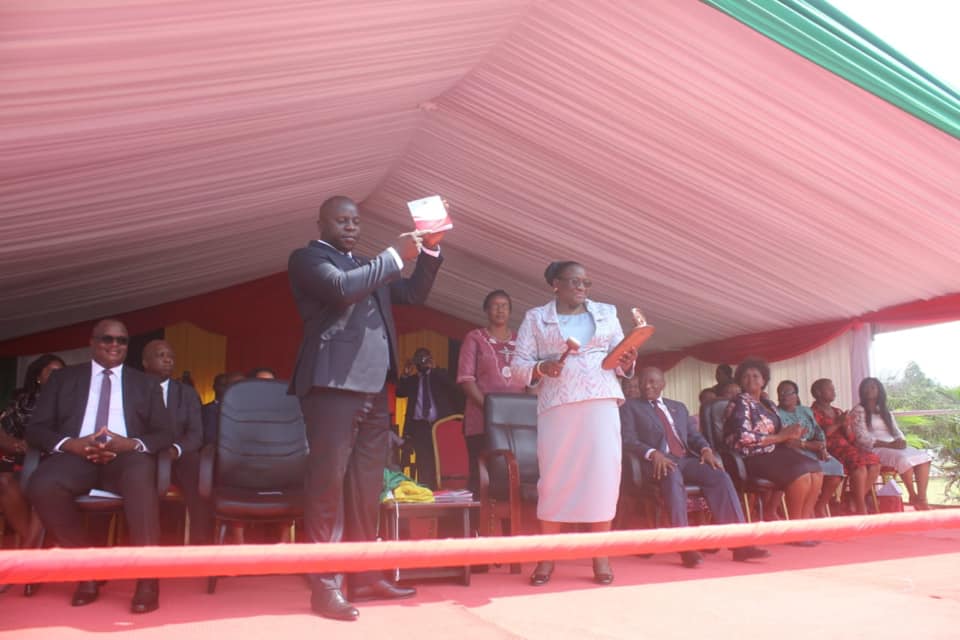
For her part, the representative of the head of state, the Minister of Foreign Affairs and Cooperation, Verónica Macamo Dlhovo, recommended the governor to deepen the mechanisms of contact with the communities and encourage a permanent dialogue with the population.
Macamo said that cooperation partners, civil society organisations, economic agents, academics and religious denominations cannot be left out, either, as the new governor will need everyone’s support.
Niassa calls for improvement in service provision
The population of Niassa asked the new governor, to improve the provision of health services, education, drinking water supply, electricity and access roads, among others, to leverage the development of the province.
The request was put in the public presentation of Judite Massengele as provincial governor of Niassa, in a ceremony led by the Minister of Labour, Employment and Social Security, Margarida Talapa, representing the President of the Republic, Filipe Nyusi.
The citizens justified their request by saying that they believe that the province of Niassa has the potential for industrialisation, thereby creating jobs especially for young people to improve their quality of life.
They argue that the Provincial Government must work to promote agriculture, which is the dynamic factor of the economy, attracting local, national and foreign investments for the installation of new projects which best market agricultural products.
Mustafa Mbuana, coordinator of the Niassa Interfaith Council, who read the message from the population, said that the population is anxious to ensure increased production and productivity and to participate in the industrialisation of the province.
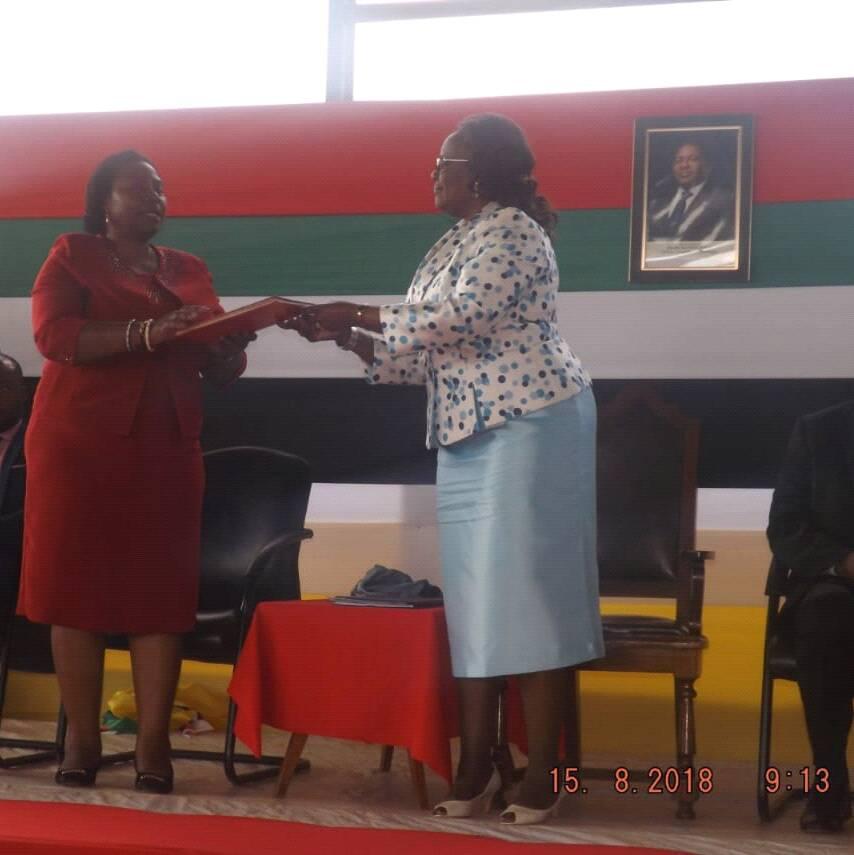
Governor Judite Massengele responded with an invitation for the population to take responsibility for being the main player in Niassa’s socio-economic development process, providing unconditional collaboration for the implementation of the Government’s Five Year Plan.
For her part, Margarida Talapa, the Head of State’s representative, said that inclusive and participatory governance guarantees positive results, and encouraged the new governor to identify zealous and responsible staff capable of adding value to the implementation of the Government’s Five-Year Plan, especially in the search for solutions to the population’s problems.
“The bodies created within the scope of decentralised governance must join forces in efforts to prevent and combat corruption and bureaucracy, which are barriers to development,” said Margarida Talapa.
Comoana recommends solving population problems in Nampula
The Minister of State Administration and Civil Service, Ana Comoana, recommended the new governor of Nampula province, Manuel Rodrigues, to master the legislation inherent in decentralised governance in order to identify the main concerns of the population and find the best solutions.
Speaking at the public presentation ceremony of the new governor, the representative of the President of the Republic said that the new Nampula governor should maintain greater openness and dedication in the exercise of the functions entrusted to him by the population.
“We also recommend that you deepen the mechanisms of permanent contact with communities, encourage and practice permanent dialogue with different segments of society and together identify the best solutions to your problems,” appealed Comoana, addressing Manuel Rodrigues, who replaces Victor Borges in the post.
Ana Comoana asked the population of Nampula for unconditional support and collaboration with the new governor they elected, through the presentation of opinions and contributions.
“We also hope that support and development will also come from cooperation partners, civil society organisations, economic agents, non-governmental organisations, academies and religious denominations that work for the progress of the province as well as by all those interested in the development of Nampula,” Comoana said.
In his speech, the new governor of Nampula, Manuel Rodrigues Alberto, promised to work closely with the population to accelerate the development of rural areas in the province.
He indicated the construction of social infrastructure, such as schools, health centres, roads and bridges as some of his governance priorities. “We are sure that the resizing of infrastructure repair and construction activities will catapult the development of the province,” the governor said.
He also promised to make efforts with his team to eradicate the phenomenon of chronic malnutrition, in a province which, at 51 percent, has the highest incidence rate in the country.
“We intend to increase water supply, to reduce the long distances that the population travels to have access to this resource, as well as boost agriculture in districts considered poor in arable land,” the new governor added.
In his farewell speech, the outgoing governor, Victor Borges, praised the selflessness and support of the province’s population during his five years in office and called for the maintenance of this spirit of support for his successor.
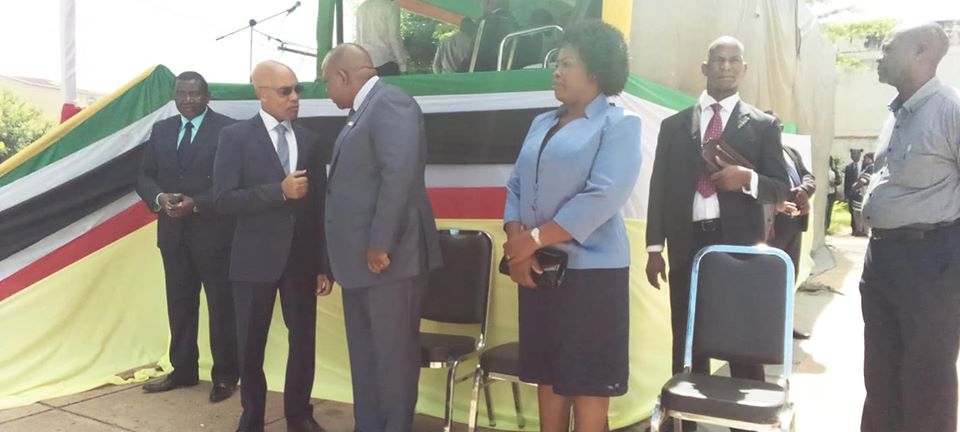
Coordination is essential to maintain coexistence
Coordination between the different bodies which emanate from the new model of decentralised governance is an essential factor to guarantee peaceful coexistence between institutions operating in the same space, avoiding interference and overlapping of actions.
So said the Minister of the Sea, Inland Waters and Fisheries, Augusta Maíta, in her capacity as representative of the President of the Republic at the public presentation ceremony of the new governor of the province of Manica, Francisca Tomás, elected on 15 October 2019.
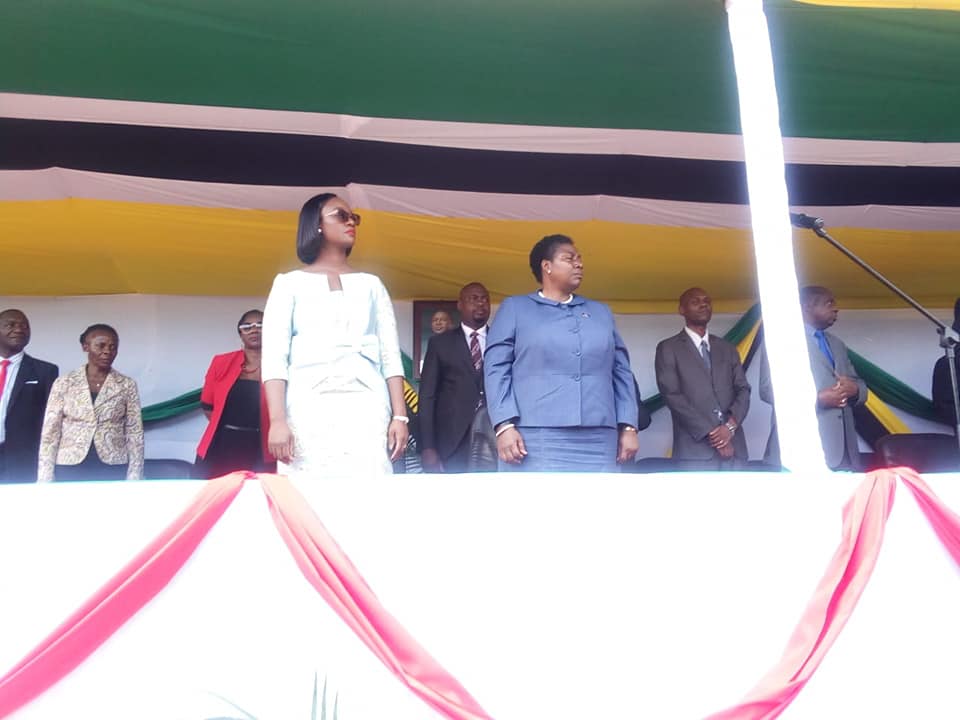
Augusta Maíta recalled that during the forthcoming five-year period, several bodies will coexist in the same province: the Provincial Assembly, the Provincial Governor, the Provincial Executive Council, the Provincial Secretary of State and the Municipalities. This will require from all bodies a greater appreciation of the state, and of tolerance and coordination, taking into account their responsibilities and specific areas of action.
“As this is a new model of provincial governance, it is reasonable that in the first days of action situations arise that will require each body to better adapt and improve in order to avoid collisions, interference and misinterpretation,” she said.
The representative of President Filipe Nyusi therefore recommended a thorough study of the decentralisation package and the Constitution of the Republic, to allow its deepening in favour of the development of Manica in particular, and of the country in general.
She pointed out that it is the competence of the Governor, in the new design, to appoint and swear into office the provincial directors, with whom he or she becomes responsible for ensuring compliance with the province’s development plans and programs.
However, she warned that “during the implementation of the provincial development plans and programmes, the new executive will be under the watchful eye of the population through the Provincial Assembly and the Council of Ministers, not to police its action but to guarantee strict compliance with the law”.
On the occasion, the new governor of the province of Manica, Francisca Tomás, stated that she will do everything to ensure the laws and attributions of the Executive she directs will be respected, adding that, despite the encouraging progress achieved by the province, the challenges are still huge and will receive her government’s attention in the next five years.
Bulha promises dialogue and a lot of proactivity
The new governor of Sofala, Lourenço Bulha, promised last Saturday, in Beira, that in the exercise of his functions he will be proactive, giving priority to actions to combat poverty and corruption, and always striving for a permanent dialogue with the population.
Bulha was speaking at the public ceremony for the transmission of powers which took place at the Largo dos Caminhos de Ferros de Moçambique (CFM), in the capital of Sofala, in a ceremony led by the Minister of Health, Armindo Tiago, representing the Head of State.
Bulha listed as some of his priorities the rehabilitation of roads in productive areas, the promotion of employment for young people and the commitment to dignify civil servants through career changes. To this end, he asked for the cooperation of all citizens.
He called on non-governmental entities to collaborate in the reconstruction of the city of Beira and other parts of the province affected by Cyclone Idai in March last year.
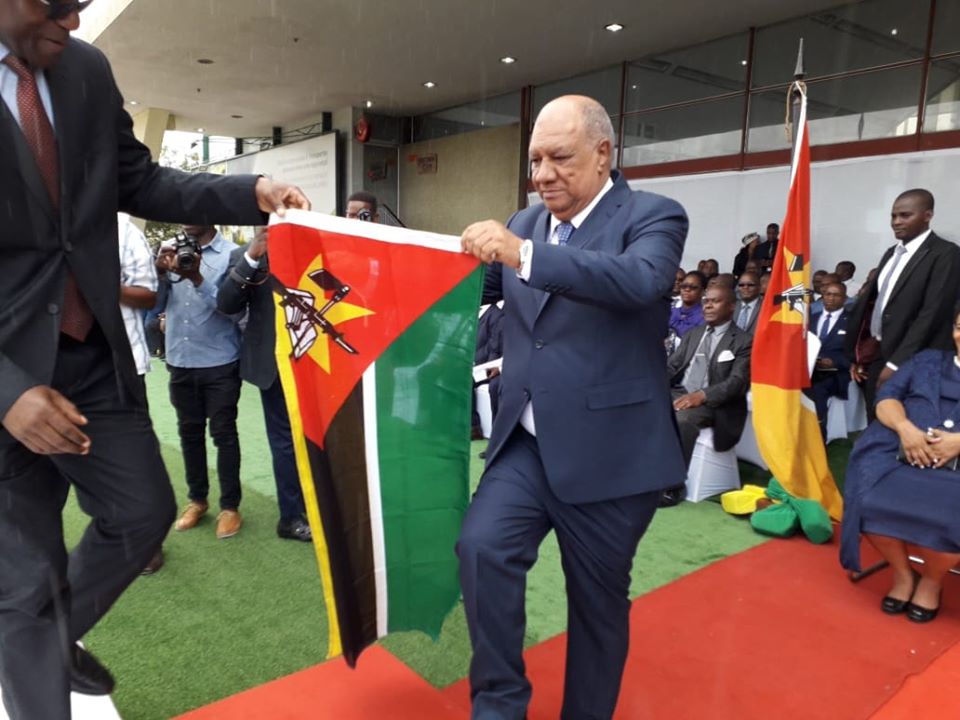
The representative of the President of the Republic, Minister of Health Armindo Tiago, advised the new governor to strive for openness, dedication, constant dialogue with society and to be a man of the land, in order to find solutions to the population’s problems.
Minister Tiago also spoke of the need to work to reduce poverty and consolidate peace and a participatory democracy, promoting the coordination of efforts between all sectors involved.
Meanwhile, the outgoing governor of Sofala, Alberto Mondlane, mentioned the difficulties and challenges he faced, such as the attacks by armed men, which spread mourning in families, and natural disasters such as Idai. He wished successes to the newly sworn-in Governor in order to develop the province, contributing to the well-being of the population.
Gaza will have dynamism in fighting poverty
The new governor of the province of Gaza, Margarida Mapandzene Chongo, promised to imprint greater dynamism in the execution of socioeconomic impact programmes to fight poverty and natural disasters, in order to increase the development of this part of the country.
Addressing the local population in central Xai-Xai on Saturday, the new governor said she would focus on increasing agricultural production, fighting corruption, and finding resilient solutions to the drought and flood problems that cyclically plague the province.
“In the mandate that is now starting, we will promote agriculture as an indispensable condition for development. We want to bring resilient solutions to the problems that afflict our population,” she said during her presentation as provincial governor.
Margarida Mapandzene said that for the intended dynamic, she hopes to have a competent team committed to the public good, as well as the collaboration of citizens. Meanwhile, she believes that, with the support of the whole society, the new executive will not disappoint the expectations of the population.
In the act of handing out portfolios, the former governor of Gaza, Stella Pinto Zeca, appealed to the population to work and support her successor to ensure the rapid development of the province.
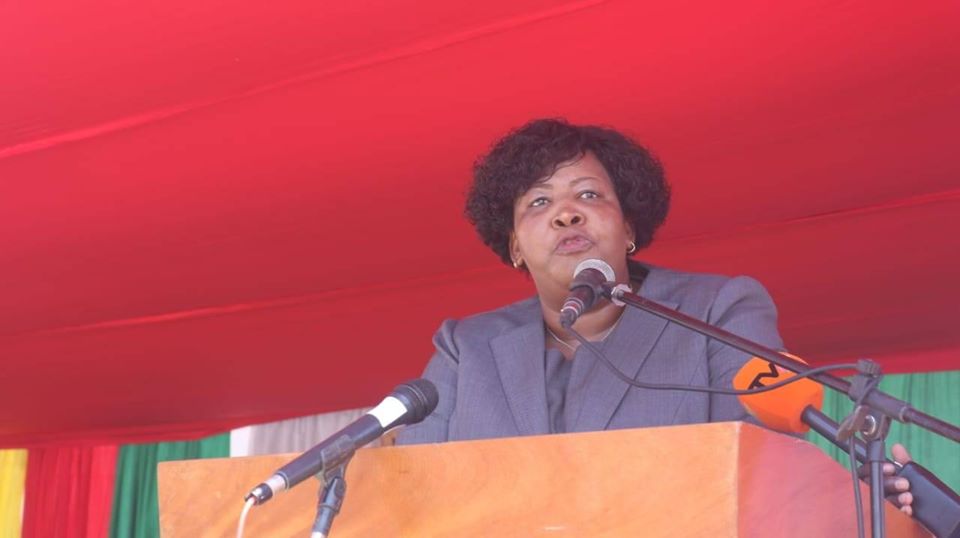






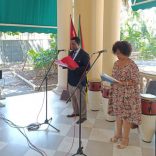
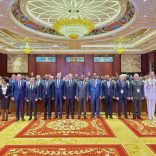




Leave a Reply
Be the First to Comment!
You must be logged in to post a comment.
You must be logged in to post a comment.